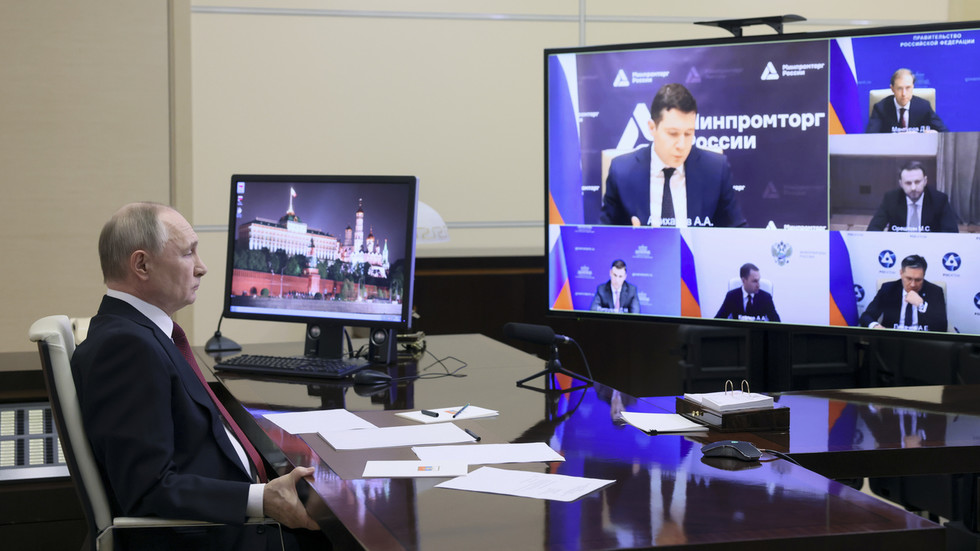Trump Seeks Strategic Alliance: Understanding Russia’s Rare Earths Potential
In a surprising turn of events, former President Donald Trump has expressed interest in forging a strategic alliance with Russia to tap into the nation’s vast reserves of rare earth minerals. This shift not only raises eyebrows but also opens a debate about the geopolitical ramifications of such a partnership. The implications for America’s resource strategy are significant, especially considering the increasing global demand for rare earth elements (REEs) in technology and defense sectors.
What Are Rare Earth Minerals and Why Do They Matter?
Rare earth elements comprise a group of 17 metallic elements that play a crucial role in modern technology. These minerals are essential in the production of high-tech devices, including smartphones, electric vehicles, wind turbines, and various defense systems. The term “rare earth” can be misleading, as these elements are relatively abundant in the Earth’s crust but are rarely found in economically exploitable concentrations.
Here are some key points about rare earths:
- Essential for Technology: REEs are vital for creating permanent magnets, catalysts, and phosphors used in displays and lighting.
- Geopolitical Importance: Control over REE supply chains can provide significant leverage in international relations.
- Environmental Concerns: Mining and processing rare earths have environmental impacts, necessitating sustainable practices.
The Current Landscape of Rare Earth Supply
China dominates the global supply of rare earths, accounting for approximately 60% of the world’s production. This monopoly has raised concerns in the United States and other nations about the reliability of supply chains, especially in times of geopolitical tension. In recent years, the U.S. has made efforts to develop its domestic supply chain, investing in mining and processing operations.
With Trump advocating for a partnership with Russia, the question arises: what potential does Russia hold in the rare earth market? Russia is home to significant reserves of rare earth minerals, particularly in regions like the Kola Peninsula and Siberia. By aligning with Russia, the U.S. could diversify its sources of rare earths and reduce its dependence on China.
Trump’s Strategic Vision
Trump has always maintained a focus on “America First” policies, advocating for economic independence and security. His proposal for a strategic alliance with Russia appears to be an extension of this ideology, aimed at securing critical resources for American industries. The former president argues that this partnership could lead to:
- Increased Resource Security: Access to Russia’s rich deposits could safeguard the U.S. against supply chain disruptions.
- Job Creation: Developing rare earth projects could create jobs in mining, processing, and technology sectors.
- Stronger Geopolitical Position: A partnership with Russia could shift the balance of power in global rare earth markets.
Geopolitical Implications of a U.S.-Russia Alliance
The proposal to partner with Russia on rare earth minerals is not without controversy. Historically, U.S.-Russia relations have been fraught with tension, marked by sanctions, military conflicts, and mutual distrust. A strategic alliance could complicate the geopolitical landscape in several ways:
- Criticism from Allies: U.S. allies, particularly in Europe, may view this partnership with skepticism, fearing it could embolden Russia.
- Domestic Opposition: Critics within the U.S. may argue that aligning with Russia contradicts American values and national interests.
- Impact on China Relations: Such a move could provoke China, potentially leading to retaliatory actions that could disrupt global markets.
Russia’s Rare Earth Potential: Opportunities and Challenges
Russia’s rare earth potential is significant, but unlocking it presents both opportunities and challenges. The country holds some of the largest untapped reserves, yet it faces obstacles in developing these resources:
- Investment Needs: Mining and processing rare earths require substantial investment in technology and infrastructure.
- Environmental Regulations: Stringent environmental laws may delay projects and increase costs.
- Technological Expertise: Russia will need to collaborate with foreign companies to access the necessary technology for efficient extraction and processing.
The Future of America’s Resource Strategy
As the world increasingly turns to renewable energy and advanced technologies, the demand for rare earth minerals is expected to rise sharply. The U.S. must navigate its resource strategy carefully, balancing the need for security with the complexities of international relations. A partnership with Russia could be a double-edged sword, offering opportunities for resource access while potentially straining diplomatic ties.
To ensure a balanced approach, the U.S. could consider the following strategies:
- Diversifying Supply Chains: Beyond Russia, exploring partnerships with other countries rich in rare earths, such as Australia and Canada, could mitigate risk.
- Investing in Domestic Production: Enhancing domestic mining and processing capabilities is crucial for long-term security.
- Fostering Research and Development: Investing in new technologies for recycling and alternative materials could reduce reliance on rare earths.
Conclusion: A New Chapter in Resource Strategy?
Trump’s call for a strategic alliance with Russia to harness the nation’s rare earth potential marks a pivotal moment in U.S. resource strategy. As the global demand for these critical minerals rises, the U.S. must consider its options carefully. Balancing resource needs with geopolitical realities will be key to navigating this complex landscape. While partnerships may offer new opportunities, they also require a thoughtful approach to ensure that America’s interests are protected in an ever-evolving world.
See more BBC Express News

